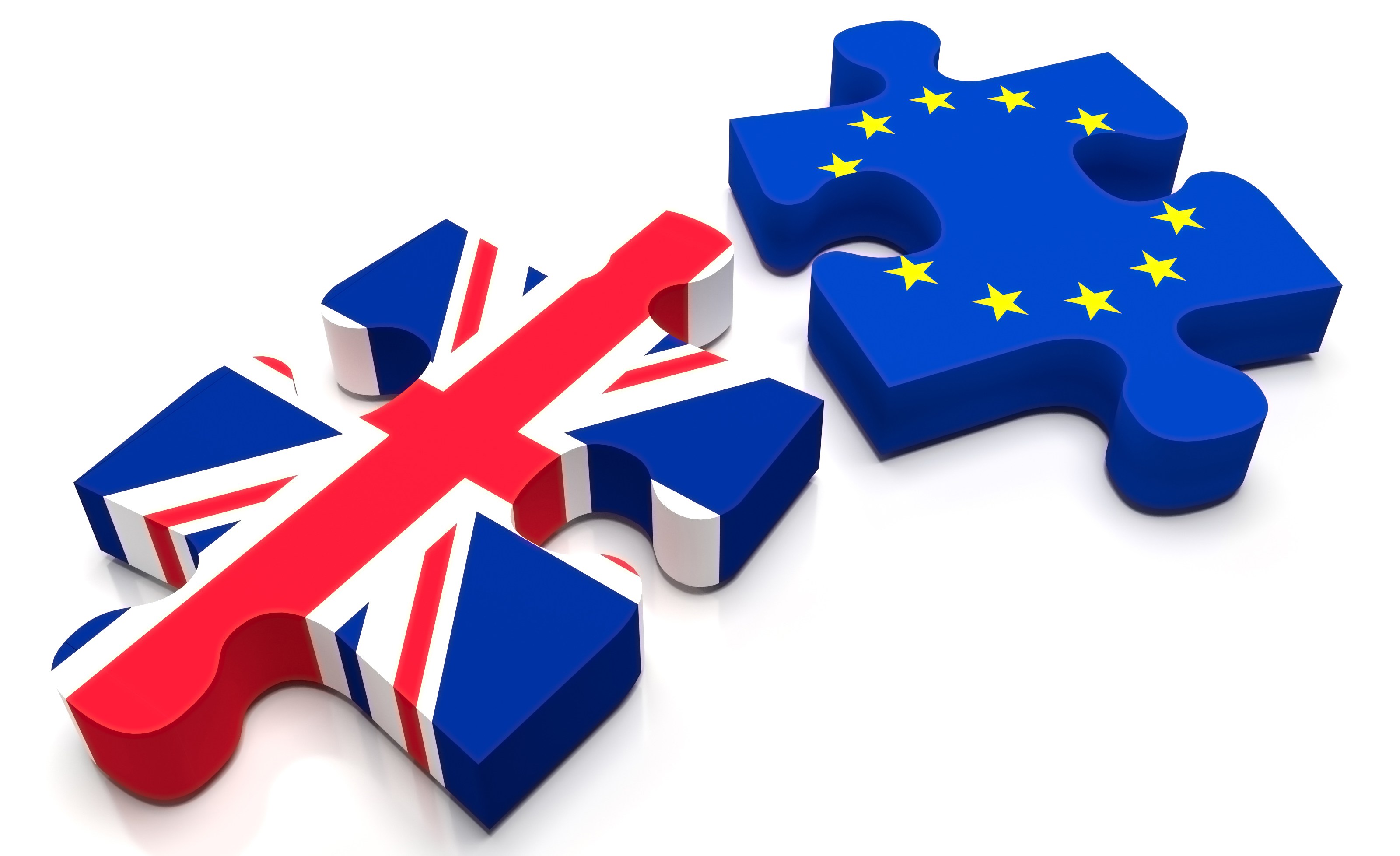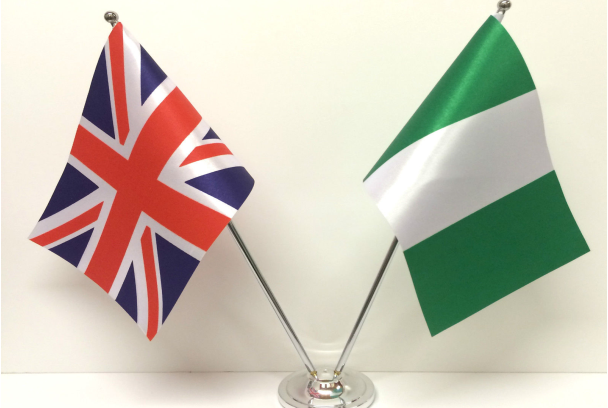Featured
Four things to know about no-deal Brexit
Published
5 years agoon
By
Olu Emmanuel
Four basic consequences may occur in the United Kingdom in exiting the European Union (EU) without concrete Brexit deal. There are fears that a no-deal quit of the EU would affect UK politics, economy, security, including millions of British and European migrants.
Apparently, fears have deepened that the UK will leave the EU without a Brexit a new deadline of April 12 gets closer.
Despite the potential for considerable disruption, British people are being told by their government to keep calm and carry on – because contingency plans are well advanced.
Alongside the stockpiling of food and medicines, use of motorways as truck parks, and emergency planning by local councils, military chiefs have also been ordered to keep 3,500 troops on standby. There are even undisclosed plans to declare martial law.
In the world’s oldest democracy, Brexiters present this as an effort to wrest democratic control from Europe.
Cynics are not convinced, pointing to secret cabinet documents about no-deal planning – codenamed Operation Yellowhammer – that were uncovered by journalists and paint a more chaotic picture.
These warn of a “critical three-month phase” after leaving the EU and “unforeseen issues and impacts” during which even the best-made plans could be overwhelmed.
In a divided Britain, the prospect of “no deal” evokes both fear and enthusiasm – but how would it affect the UK?
Politics
Brexit has already put the UK’s political system under strain, opening deep divisions in the two main political parties, Conservative and Labour, which a no-deal scenario could bring to a head.
Experts say Brexit has also damaged perceptions of politicians, routinely ridiculed in the popular press for their failure to agree to a reasonable solution.
Observers believe Brexit has empowered the far right, with long-term implications for Britain’s democracy, while also intensifying calls for political reform – especially, modernisation of the old-fashioned voting system.
A no-deal Brexit could also have damaging implications for Europe, itself, further straining relations with the UK’s neighbours, harming key economic partners, and potentially exacerbating populist pressures.
Economy
A no-deal Brexit would mean that there would be no “transition period” to ease the UK out of the bloc and all EU regulations would instantly cease to apply – causing disruption that some economists say could shave at least 2 per cent off the gross domestic product (GDP) by the end of 2020.
The UK government would not have to pay an annual 13 billion pounds ($17bn) to the EU budget, but would also lose key subsidies such as the 3 billion pounds ($3.9bn) for farmers under the Common Agricultural Policy.
Overnight, Britain would lose the benefits of the EU’s 70 international trade deals, reverting instead to World Trade Organization (WTO) rules governing how it deals with imports and exports.
EU tariffs, VAT and a ban on food of animal origin would confront British exporters with the same obstacles to trade as those facing other non-EU countries.
The prices of some imports, especially fresh vegetables and fruits, could soar by up to 10 percent in British shops and a likely fall in the value of the pound would trigger inflation.
New import controls at borders could disrupt freight traffic as trucks going to and from the EU complete customs declarations, causing bottlenecks on motorways in southern England.
Higher import prices, freight delays on both sides of the Channel – and inevitable panic buying – could exacerbate shortages.
In theory, a no-deal Brexit frees up the UK to agree trade deals with other countries – something it cannot do as an EU member – but the benefits are limited, because these take years to complete.
On financial services, EU leaders know which side their bread is buttered on – and a raft of “mini-deals” to soothe capital markets have already been agreed.
In the long term, however, there are fears that a no-deal Brexit will chill investment in the UK, hitting jobs, and that manufacturers will abandon Britain for the continent.
Some sectors could be hit hard. House prices could plummet, mobile phone roaming charges could rise, and British people will lose consumer protection for products bought in Europe.
Northern Ireland is even at risk of blackouts because no deal would undermine the legal basis of the all-island electricity market it shares with the Irish Republic.
Security
Opponents of a no-deal Brexit fear its impact on the border between Northern Ireland and the Republic of Ireland. Such a scenario would load pressure to enforce customs controls creating a “hard border” manned by uniformed authorities – a move that would threaten to revive old tensions.
A no-deal Brexit would cut UK access to EU criminal databases, with the counterterrorism chief of London’s Metropolitan Police warning that this would be “very bad” for policing.
And British people had better get used to their beloved queues – the EU would reciprocate on any UK border checks, leading to long delays at passport control.
They may even have to go through airport security twice if they transfer to a connecting flight.
Citizenship
A no-deal Brexit has significant implications for expatriates, the 1.3 million Britons in EU countries and 3.7 million Europeans in Britain.
British people in the EU have been advised to register as residents and they may lose access to free or discounted healthcare.
The UK has pledged to protect the rights of EU citizens and their families in Britain, but they will need to apply for “settled status”, and the rules are stricter in a no-deal scenario.
British travellers will not need a visa to stay for 90 days in the Schengen area, but may need one if they stay longer.
And once there, they will notice important changes. It will be more expensive to use UK bank cards, they will have to pay for health insurance, and they may require an International Driving Permit.
Pet owners will no longer be able to use the existing “pet passports” that make it easy to take their animals abroad, and will have to visit a vet months in advance of travelling.
You may like


Pelumi Nubi : London-to-Lagos solo driver honoured by Sanwo-Olu


UK Defence Chief commends Nigerian army’s commitment to stability in Africa


Finally, Twitter influencer, Dr Olufunmilayo exonerated of rape allegations by ex-girlfriend


Protesters storm EU office over report on the 2023 General elections


E.U thinks Football is now politics


United Kingdom has resumed issuance of visitor’s visa for Nigerians
Trending

 Health & Fitness3 days ago
Health & Fitness3 days agoMalaria Vaccines in Africa: Pastor Chris Oyakhilome and the BBC Attack

 Featured6 days ago
Featured6 days agoPolice reportedly detain Yahaya Bello’s ADC, other security details

 Education1 week ago
Education1 week agoEducation Commissioner monitors ongoing 2024 JAMB UTME in Oyo

 Business1 week ago
Business1 week agoMaida, university dons hail Ibietan’s book on cyber politics

 Aviation5 days ago
Aviation5 days agoWhy some airlines are avoiding Nigeria’s airspace–NAMA

 Business6 days ago
Business6 days agoDebt servicing gulps 56% of Nigeria’s tax revenue, says IMF

 Crime1 week ago
Crime1 week agoPolice take over APC secretariat in Benue

 News6 days ago
News6 days agoOndo APC guber hopefuls reject primary poll

